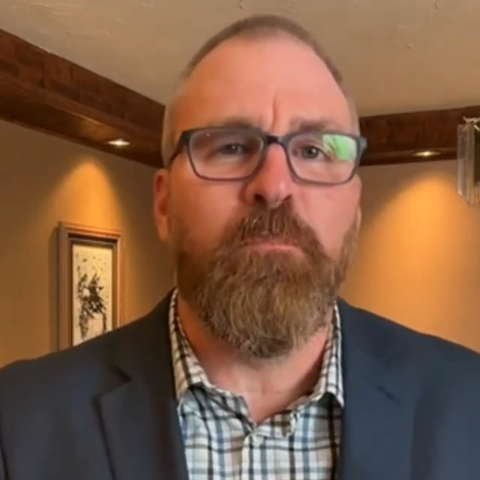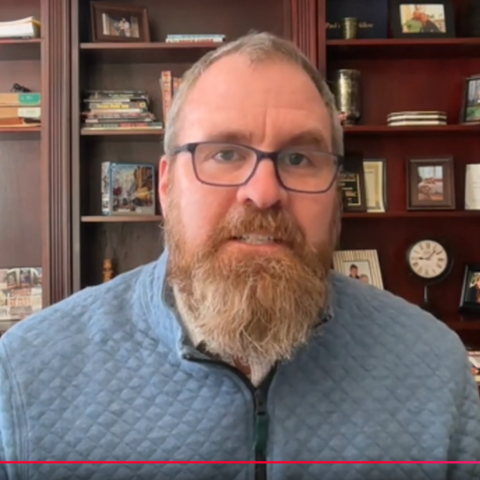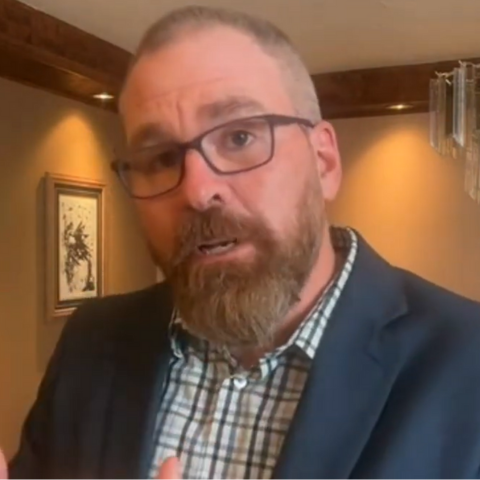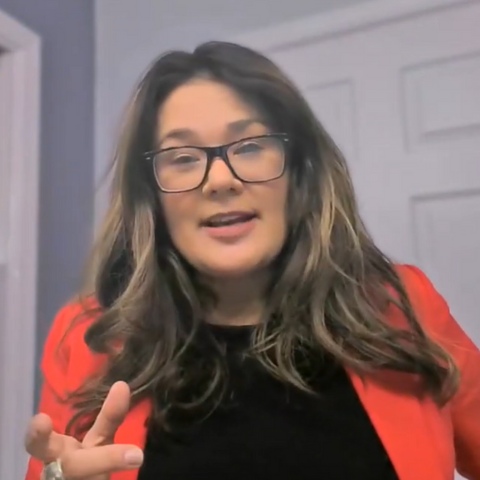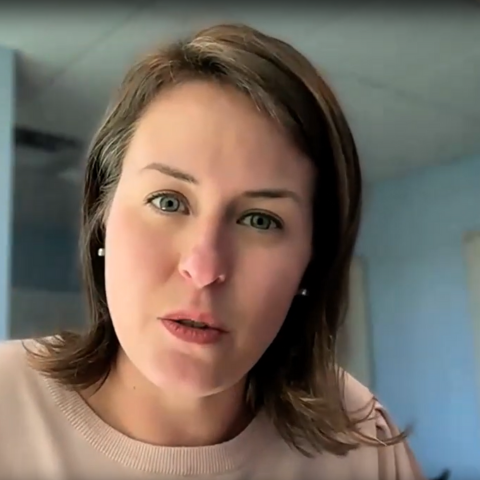Assessment 101
Assessment 101 is ideal for those relatively new to assessment practices. Many seasoned assessment practitioners attend as well. Individuals and teams from across the country come to learn strategies regarding how to teach others about assessment. Assessment 101 is a 5-day virtual, intensive workshop about each step of the assessment cycle with a special emphasis on learning improvement.
Click here for more information including upcoming dates, cost, and registration.
Initi8: Improving Ethical Reasoning at Scale
Initi8 is an intensive, five-day IN-PERSON workshop co-hosted by the Center for Assessment and Research Studies (CARS) and Ethical Reasoning in Action (ERiA). Attendees will learn how to integrate content knowledge/skills in ethical reasoning with pedagogy, assessment and faculty development to create an improvement plan. The process can be adapted to any knowledge or skill area. The workshop is hands-on and collaborative.
Click here for more information including upcoming dates, cost, and registration.
Improving Student Learning at Scale in Higher Education (Learning Improvement)
Join us for a comprehensive virtual workshop, "Improving Student Learning at Scale in Higher Education (Learning Improvement)," where you will discover the six essential steps to enhancing student learning at scale, guided by the expert who authored the book on the subject (Improving Student Learning at Scale, Fulcher & Prendergast, 2021). "Learning Improvement" is perfect for individuals with some experience in assessment, teaching, and learning. It is particularly valuable for those managing initiatives aimed at impacting large student populations, such as Quality Enhancement Plans or program-level curricular reforms.
Click here for more information including upcoming dates, cost, and registration.Best Practice in Student Affairs Assessment: Resources to Support Program Theory, Implementation Fidelity, and Equity
This three-day virtual, intensive worksop is ideal for student affairs educators or higher education professionals focused on designing and assessing co-curricular or student affairs programming. Focusing on program theory, implementation fidelity, and equity, this workshop equips participants with tools to critically evaluate and improve student affairs and student success programs. A specialized rubric will help identify varying levels of program and assessment quality, ensuring data-driven program refinement.
Click here for more information including upcoming dates, cost, and registration.
Managing Academic Degree Program Assessment in Higher Education
This engaging three-day virtual workshop is designed specifically for institutional-level assessment professionals. Under the guidance of Dr. Megan Good, co-author of "Assessment 101 in Higher Education," you'll dive deep into the critical elements of building an effective institutional assessment system for program assessment. You'll embark on a journey to explore the foundation of your current assessment approach, integrating the unique context influencing you and your work. We'll guide you in defining quality assessment in your specific context and delve into the practice of 'meta-assessment' to refine your strategies, ensuring you leave with actionable insights and a stronger foundation in academic program assessment.
Click here for more information including upcoming dates, cost, and registration.
About: Assessment 101
In this nationally-acclaimed (NASPA Silver Award-winning) workshop, participants learn about each step of the assessment cycle with a special emphasis on learning improvement. Assessment 101 is a 5-day virtual, intensive workshop designed to combine synchronous and asynchronous time to reinforce the knowledge gained while also imparting tangible skills. Individuals and teams from across the country come to learn strategies regarding how to teach others about assessment.
Assessment 101 will explore topics such as:
• writing student learning outcomes
• mapping the curriculum
• creating instruments
• examining implementation fidelity
• analyzing data
• reporting results
• using results to make evidence-based decisions
Assessment 101 is ideal for those relatively new to assessment practices. Many seasoned assessment practitioners attend as well. A $1,500 registration fee covers participation and materials provided during the 5-day workshop. There are a limited number of seats for each cohort.
Faculty and staff at James Madison University can apply to have this fee waived through an assessment scholarship. The deadline for JMU participants to apply for the June 2025 session is Monday, April 21.
Upcoming Assessment 101 Workshops
- Summer 2025 - Monday-Friday, June 2-6, tentatively Mon-Thu 10 AM -4:30 PM, and Fri 10 AM -1:30 PM ETS.
- Register for Assessment 101 for Summer 2025
- Registration closes Monday, May 19th at 12:00 PM EST.
If you have further questions, please contact us at assessmentdevelopment@jmu.edu.
About: Improving Student Learning at Scale in Higher Education (Learning Improvement)
Join us for a comprehensive virtual workshop, "Improving Student Learning at Scale in Higher Education (Learning Improvement)," where you will discover the six essential steps to enhancing student learning at scale, guided by the expert who authored the book on the subject (Improving Student Learning at Scale, Fulcher & Prendergast, 2021). This workshop blends synchronous and asynchronous elements to reinforce your learning and equip you with practical skills.
Workshop Topics Include:
- Building a collective will to improve
- Creating a vision for learning
- Establishing a baseline
- Identifying effective interventions
- Implementing interventions with fidelity
- Re-assessing to determine if improvement has occurred
"Learning Improvement" is perfect for individuals with some experience in assessment, teaching, and learning. It is particularly valuable for those managing initiatives aimed at impacting large student populations, such as Quality Enhancement Plans or program-level curricular reforms.
Summer 2025 Session: Mon, June 9-Thu, June 12, 10am to 4pm, and Fri, June 13, 10am to 1:30 PM, EST. Registration closes Tuesday, May 27th at 12:00 PM EST.
Register for Improving Student Learning at Scale
- Five-day online workshop.
- Approximately three hours of reading are required prior to the first synchronous session.
- Facilitated by Dr. Keston Fulcher, Improvement Strategist at the Center for Assessment and Research Studies, JMU, and supported by Graduate Assistants from Center for Assessment and Research Studies, JMU.
- Registration Fee: $2,000 (includes participation and materials including a copy of Improving Student Learning at Scale Fulcher & Prendergast, 2021). Faculty and staff at James Madison University can apply to have this fee waived through a learning improvement scholarship.
If you would like to join a future cohort, use the form at the bottom of this page to note your interest.
About: Initi8: Improving Ethical Reasoning at Scale
Initi8 is an intensive, five-day IN-PERSON workshop co-hosted by the Center for Assessment and Research Studies (CARS) and Ethical Reasoning in Action (ERiA). Attendees will learn how to integrate content knowledge/skills in ethical reasoning with pedagogy, assessment and faculty development to create an improvement plan. The process can be adapted to any knowledge or skill area. The workshop is hands-on and collaborative.
WHEN: July 21-25, 2025WHERE: James Madison University in Harrisonburg, VA (click here for the Initi8 travel guide)
WHO: This workshop is designed for individuals looking to improve learning at scale OR teams of 4-6 who can jointly contribute to a program-level project.
COST: $2,000 per team member. Includes…
- Pre-conference interview.
- 5-day workshop; breakfast and lunch each day.
- Post-workshop plan analysis.
- Use of ER rubric within designated program.
Register for Initi8: Learning Improvement in Action
- Registration closes Monday, July 7th at 12:00 PM EST.
Don’t miss this unparalleled opportunity to gain hands-on experience with learning improvement! Over the course of five days, participants will develop a detailed learning improvement plan for an ethical reasoning intervention tailored to their own program. Along the way, participants will learn:
- Effective strategies for teaching ethical reasoning skills
- Methods for assessing ethical reasoning skills
- Strategies for implementing a program level ethical reasoning intervention
- A general framework for implementing any learning improvement project
About: Best Practice in Student Affairs Assessment: Resources to Support Program Theory, Implementation Fidelity, and Equity
Participants will review each step of the assessment cycle with a special emphasis on program theory, implementation fidelity, and equity considerations. On their own, student learning and development outcomes assessment data have limited utility for improving student affairs and student success programming. However, program improvement can be greatly facilitated by asking two fundamental questions: “Why should this programming result in the desired outcome?” (i.e., program theory) and “Was the intended programming actually experienced by students?” (i.e., implementation fidelity). Moreover, answering these questions addresses equity and inclusion concerns. Specifically, is programming inclusive of students with different backgrounds and characteristics (e.g., part-time students, students of color, veterans, students who are neurodivergent)? We discuss and provide resources to frame outcomes assessment efforts to answer these fundamental questions, which facilitates program and learning improvement.
In “Best Practice in Student Affairs Assessment”, participants will explore topics such as:
- program theory as the mechanism undergirding all outcomes assessment efforts
- implementation fidelity to accurately depict the program being experienced by students
- equity considerations at each step of the outcomes assessment cycle, including
- Student Learning and Development Outcomes
- Selecting and Designing Measures
- Gathering and Analyzing Data
- Reporting Results
- Using Results for Assessment and Programmatic Improvement
- a rubric to identify varying levels of quality assessment, which guides continuous improvement
- resources to facilitate the construction of professional development in best practice in assessment
- alignment between student affairs professional standards and resources shared in this session
“Best Practice in Student Affairs Assessment” is ideal for student affairs educators or higher education professionals focused on designing and assessing co-curricular or student affairs programming. Those relatively new to assessment practices are welcomed. Seasoned student affairs educators, professionals overseeing student success programming, and assessment practitioners will be exposed to powerful strategies to advance best practice and professional development in assessment and program improvement.
Summer 2025 Session: August 5, 6, and 7, 9:30 AM to 5:00 PM EST each day. Registration closes Monday, July 21st at 12:00 PM EST.
Register for Best Practice in Student Affairs Assessment
- Online Workshop held over three full days.
- A $1,200 registration fee covers participation and materials provided during the 3-day workshop.
- There are a limited number of seats for each cohort.
Lead facilitator: Dr. Sara Finney, Associate Director of Student Affairs Assessment at CARS, and professor of Graduate Psychology at JMU.
If you would like to join a future cohort, use the form at the bottom of this page to note your interest.
About: Managing Academic Degree Program Assessment in Higher Education
Are you newly responsible for overseeing academic program assessments, or considering improvements to your current assessment framework? This engaging three-day workshop is designed specifically for institutional-level assessment professionals. Under the guidance of Dr. Megan Good, co-author of "Assessment 101 in Higher Education," alongside JMU colleague Laura Lambert, you'll dive deep into the critical elements of building an effective institutional assessment system for program assessment.
Throughout the workshop, you'll embark on a journey to explore the foundation of your current assessment approach, integrating the unique context influencing you and your work. We'll guide you in defining quality assessment in your specific context and delve into the practice of 'meta-assessment' to refine your strategies. You'll confront the significant choices involved in designing a comprehensive and effective institutional system for program evaluation and enhancement.
By the end of the workshop, each participant will have crafted a practical project tailored to their institution's needs, which they will present to their peers. This collaborative environment provides rich opportunities for networking and sharing best practices, ensuring you leave with actionable insights and a stronger foundation in academic program assessment.
- Online Workshop over three full days.
- Registration Fee: $1,200
- If you have further questions, please contact us at assessmentdevelopment@jmu.edu.
- If you would like to join a future cohort, use the form at the bottom of this page to note your interest.
Lead Facilitator: Megan Good is the Executive Director of the Center for Assessment and Research Studies (CARS). In this capacity, she oversees assessment support for degree programs, student affairs, general education, and special projects aimed at enhancing student learning and development. Alongside her extensive work on meta-assessment and learning improvement, she is the co-author of "Assessment 101 in Higher Education: The Fundamentals and How to Apply Them."
FAQs about CARS Events
You can register for as many people as will attend as long as payment is completed for each person by the enrollment deadline. The person sitting for the workshop does not have to be the one completing the registration.
You may cancel your registration up to two weeks prior to the program start date and receive a refund of course registration fees, less a $25 administrative fee. To withdrawal from this course you must send a request to cpdtraining@jmu.edu. Requests received beyond the deadline will receive no refund. For more information, please visit Policies & Notices.
As part of Assessment 101, each participant completes an individual or group project. These projects usually pertain to some aspect of the assessment cycle. For example, an individual may choose to focus on writing student learning outcomes for an academic degree program or identifying an appropriate instrument to measure such outcomes.
Here a few examples from previous projects:
While you can expect to receive an orientation email sent the week prior to the session, there is no formal pre-workshop preparation material. However, participants new to assessment may benefit from exploring the CARS Professional Development in Assessment webpage to learn more about the Assessment Skills Framework and other freely available resources.


